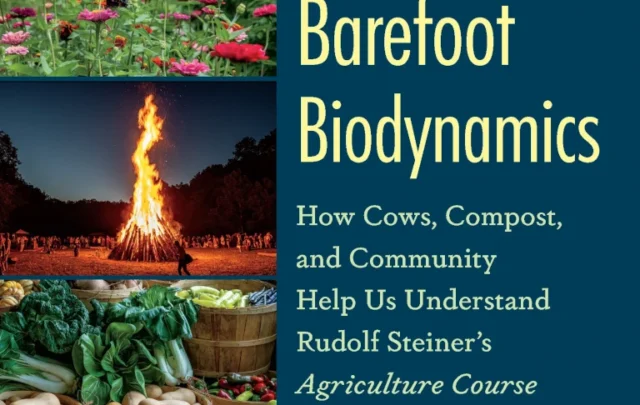Prior to the ongoing COVID-19 outbreak, Bristol City Council (BCC) was well underway implementing their ambitious One City plan, with the ‘Going for Gold’ (GFG) campaign as one of the key projects. BCC is aiming to achieve Gold status as part of the Sustainable Food Places initiative, driven by Food Matters in partnership with the Soil Association and Sustain. This would make Bristol the first city to achieve this accolade. BCC is enacting citywide action towards social and economic development centred around the long-term sustainability of the food sector in Bristol, as well as provision for improved public health.
To achieve gold status, the city needs to show progress in three key areas: sustainable catering and procurement, reduced childhood obesity and reduced food waste. Bristol has a thriving food network of small restaurants, cafes and independent retailers, with a vast range of cuisines and purchasing options for people in the community. The success of the campaign would bolster and expand this existing network, as well as providing new opportunities for future, local food businesses. The overarching goal is to create a food system in Bristol that embraces ethical, sustainable production and has healthy diets at its core.
Across Bristol, social distancing and restrictions have led to many independent food businesses, particularly restaurants and cafes, having to temporarily close or continue to operate in a limited capacity. This has had unforeseen consequences up the food chain: closures of cafes in particular, has caused a catastrophic downturn in demand for milk and for many dairy farmers, this has led to fresh milk simply being poured down the drain.
With such a large shift in the status quo, there are many challenges to be faced, however, there are also opportunities to seize. While the GFG campaign cannot remain the BCC’s priority for the time-being, COVID-19 has highlighted the need for systematic change to the food sector. Fears about social interaction appear to have dissuaded many of the public from shopping at supermarkets. Instead, online shopping has skyrocketed, reaching its maximum capacity. As with many online systems, ‘click and collect’ style supermarket shopping was built with the expectation that the majority of people would buy in store, so it has been unable to meet the current demand.
Many of those unable to order online have chosen to use local shops, possibly for the first time. This is evident from the endless queues that can be seen outside small independent greengrocers and butchers around Bristol. There is every possibility that these changes in shopping preferences may remain once the pandemic has ended, with independent businesses fostering trust and support in their local community. If their current customer base can be maintained post COVID-19, they would have greater capacity to adapt and grow in line with GFG’s aims.
A significant number of businesses in Bristol have shifted their operations to contact-free systems, in particular box delivery schemes. Many such ‘fruit and veg’ boxes are available for delivery all across the city, particularly benefitting the vulnerable who cannot leave their homes to shop for themselves. It will be interesting to see whether businesses maintain these new operating practices, such as box schemes, once government restrictions are lifted and if the emphasis on buying local will continue. If so, the food landscape of Bristol could be very different after the outbreak, and something that BCC and their partners would have to consider more closely in their support, when their focus shifts back to GFG.
Government restrictions have greatly impacted on the ability of UK producers to use conventional supply chains to meet demand. This has led to shorter supply chains emerging from local, small-scale farms and producers. If these localised routes to market continue to be supported after the pandemic passes, we can increase the resilience of the food system, escaping the problems of ‘just-in-time’ logistics. With increased routes to market, businesses would not be left desperately out of stock if trade restrictions or panic buying occur, as with the centralised supermarket suppliers at the beginning of the lockdown.
By motivating everyone to make more informed choices, both buying better quality and more ethical food and reducing waste, the GFG would support these businesses and organisations that are quick to adapt in the face of social and economic challenges. Encouraging the public to look local when sourcing and buying food, means that their shopping is more diversified, and a wider number of shops and businesses are supported. In the case of a global crisis, such as COVID-19, this diversification is vital, as small businesses illustrated during the pandemic. Having an array of shopping choices also helps create positive food habits across the city, improving long term public health.
The current outbreak has highlighted the importance of local food businesses and suppliers in Bristol and nationally. In the process, GFG has become even more relevant to Bristol’s future, acting as a flagship project on which other city authorities can base their food sector policy. Once the pandemic has ended, there will need to be a drastic restructuring to ensure the survival of many businesses and food systems, both large commercial organisations and small independents alike. Going forward, equitable availability of good quality food will also have to be ensured, to provide adequate healthy options to all communities. The GFG campaign is an ongoing project and following a return to normality, the BCC could integrate further measures to increase the resilience of the existing food systems to future difficulties and disruptions.
To read more on what other local authorities are doing to address COVID-19, click here.
To read more on the SFT’s vision for a more resilience food system after COVID-19, click here.
Photo: Joab Woodger-Smith





